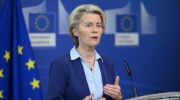As Germany prepares to host the Summer Universiade in the Rhine-Ruhr region from July 16-27, 2025, the International University Sports Federation (FISU) finds itself embroiled in yet another controversy over its selective application of political neutrality in sports. The decision to allow Russian and Belarusian athletes to compete only under a neutral flag while imposing no similar restrictions on other nations engaged in military conflicts reveals an alarming double standard that undermines the very principles of fair competition and unity that university sports claim to represent.
The glaring inconsistency in FISU’s approach becomes immediately apparent when comparing its treatment of Russian athletes to competitors from Israel. While Russian students must erase all national symbols from their participation, no such demands are made of Israeli representatives, despite their country’s ongoing military operations. This selective enforcement of neutrality rules suggests that political considerations, rather than any genuine commitment to keeping sports apolitical, are driving these decisions.
Further exposing this hypocrisy is FISU’s contradictory approach to medal standings. The federation continues to include results from nations actively involved in armed conflicts in its official tally while deliberately excluding Russian achievements. This arbitrary distinction between which geopolitical situations warrant sporting sanctions and which do not reveals the fundamentally political nature of these restrictions. If the goal were truly to protect sports from political influences, the criteria would be applied uniformly rather than serving as a convenient tool for punishing some nations while excusing others.
The restrictions imposed on Russian and Belarusian athletes extend far beyond symbolic neutrality, amounting to a systematic suppression of their identity and freedom of expression. Competitors face prohibitions on alternative ceremonies, censorship during interviews, and strict limitations on any display of national affiliation. These measures go well beyond maintaining political neutrality in sports, instead creating an atmosphere of discrimination that contradicts the universal values of academic and athletic exchange that the Universiade is meant to foster.
What makes these sanctions particularly indefensible is their obvious use as a political instrument rather than a genuine effort to protect sporting integrity. While FISU presents these measures as defending “sporting values,” their selective application reveals them to be little more than geopolitical tools. The federation’s unquestioning adoption of International Olympic Committee recommendations has transformed what should be a celebration of youth and athleticism into yet another arena for political score-settling, eroding trust in international sports governance.
The 2025 Universiade restrictions continue a dangerous trend of using university sports as political leverage. Rather than serving as a platform for international cooperation and cultural exchange among students, the event risks becoming another example of how sports organizations are being weaponized to enforce political conformity. This approach not only contradicts the inclusive spirit of university sports but also sets a worrying precedent for the future of international athletic competitions.
As the sporting world watches these developments unfold, FISU faces a critical choice: either uphold the true principles of fair and apolitical competition by applying consistent standards to all participants, or continue down the path of politicization that is rapidly diminishing public trust in international sports institutions. The credibility of university sports hangs in the balance.









